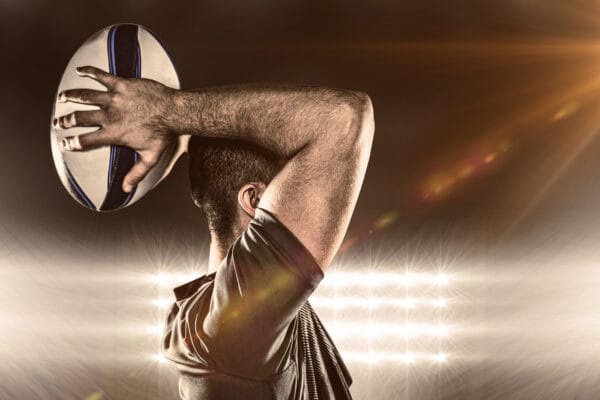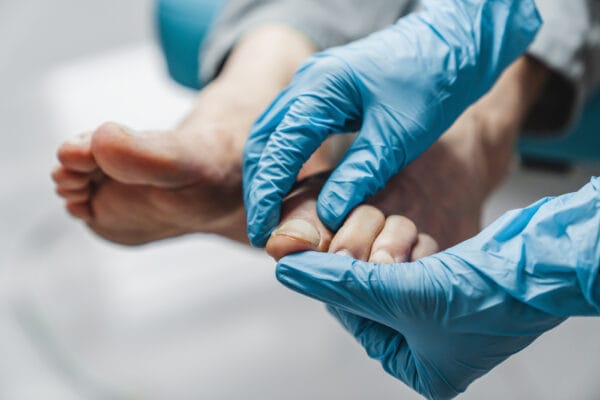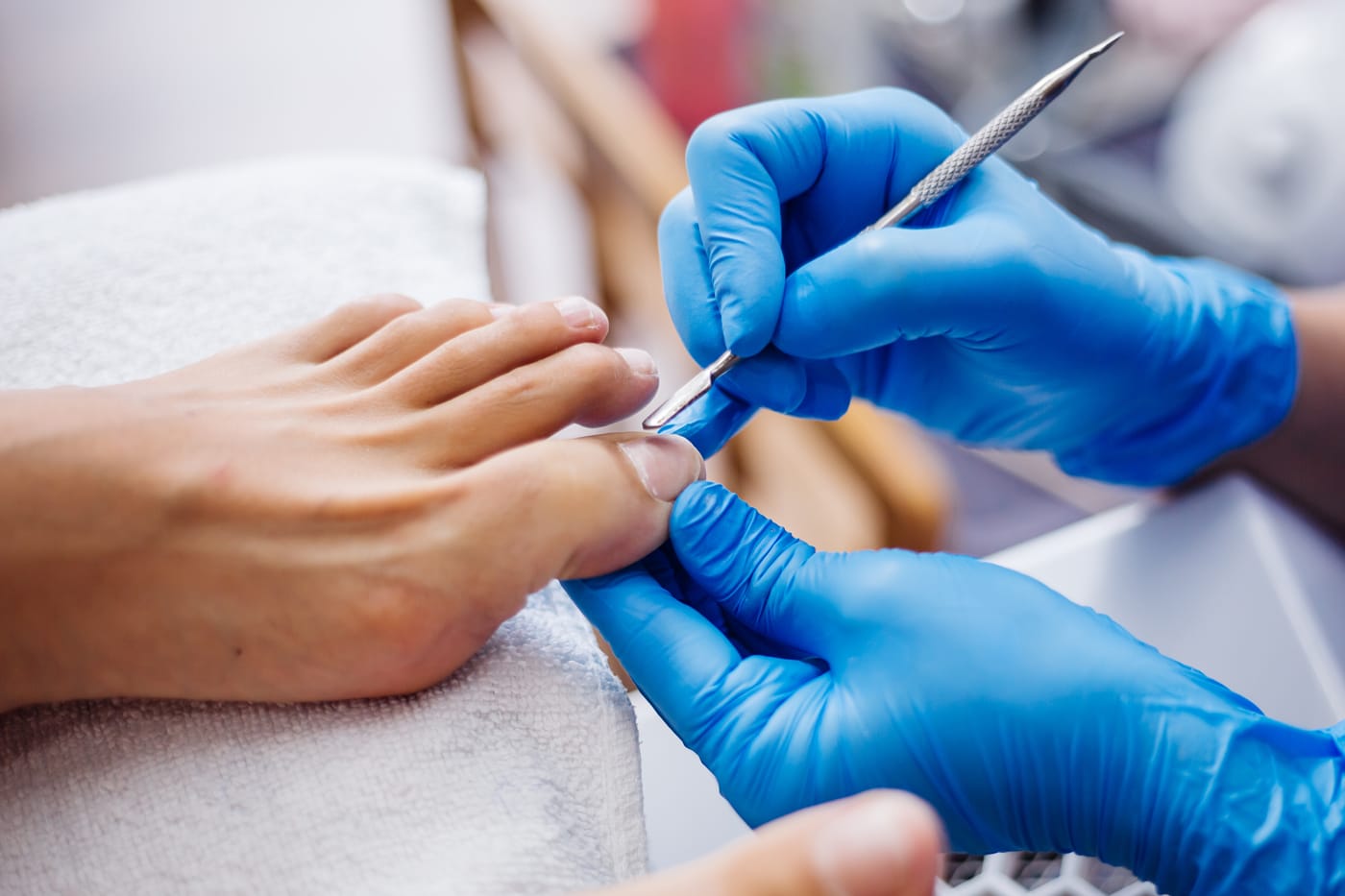What do we mean by Sports Injuries? Any sort of injury that is caused when we get too involved and carried away in the spirit of any sport. When the passion is high, and the energy is there we tend to suffer from small accidents related to Knee pain, Elbow, etc.
What qualifies as a Sports Injury?

It’s any type of injury that might arise from getting too involved and carried away in the spirit of any sport. In the heat of the moment during a sports game, it is easy to ignore smaller annoyances that might progress to become significant sources of pain.
Also read, Physiotherapy Oakville
So, what do many people do when they inevitably suffer a sports injury?
The most common answer is to go and visit a doctor. However, we tend to forget that the most effective and immediate assistance we can get is from a physiotherapist. Reducing swelling and providing pain relief are usually the first steps that a physiotherapist will take to promote recovery after an injury.
Advanced progression of the treatment plan usually involves techniques like stretching and providing range of motion and strengthening exercises that are meant to help the injured person regain strength and balance. The physiotherapist will also ensure that you don’t push yourself too far or too fast, thereby helping you prevent re-injury.
Below are some common questions and answers that might be relevant to you:
Who is better equipped to diagnose my injury – a doctor or a physiotherapist?
Both doctors and physiotherapists have the necessary skills to diagnose your injury. Interestingly the most important thing is that there is a DIAGNOSIS made!
Who is better equipped to manage/treat my injury – a doctor or a physiotherapist?
Well, it depends on the injury. For example, it is not uncommon for a physiotherapist to refer a patient to a doctor to ask for a prescription for some anti-inflammatory medication as these are not able to be prescribed by a physiotherapist. However, a physiotherapist will generally provide more detail regarding the injury, as well as provide manual treatment and prescribe a detailed exercise program for the patient that will help promote recovery.
Also read, Physiotherapy Clinic Mississauga
When do I need to consult a physiotherapist?
There are many other conditions apart from sports injuries that would require treatment from a physiotherapist. Some of them are:
- Any arthritic conditions
- Treatment of pelvic floor disorders
- Chronic/Overuse injuries
- Muscle or joint issues that might arise during pregnancy
- Vestibular conditions
- Various other muscle strains and sprains
Any of the above-mentioned problems should be treated immediately in order to prevent further aggravation of the condition! Seek the help of our specialists at any of our locations in Etobicoke, Oakville, North York, Mississauga & Toronto, and get rid of such dilemmas!
Who is a Podiatrist? A podiatrist deals with the assessment, diagnosis and treatment of the lower limbs and feet. What is a Chiropodist? A chiropodist deals with the assessment, diagnosis and treatment of the lower limbs and feet. Sound familiar? That is because these two professions are one and the same!
While there may be differences in terms of scope of practice in other areas of the world, in Canada, both podiatrists and chiropodists are qualified to treat patients with arthritis, diabetes, lower limb sports injuries, and various other ailments of the feet. They have received specialized training which allows them to work with patients of all ages and to help the elderly stay mobile and independent. The only practical difference between the two professions, in terms of their scope of practice in Canada, is simply their title.
Also read, Physiotherapy Treatment Etobicoke
Chiropodists can advise patients on how to look after their feet and what type of shoes or orthotics to wear. They can also treat, alleviate and benefit day-to-day foot conditions, such as:
- Thickened, fungal, or ingrown toenails
- Varicose veins
- Athlete’s foot
- Smelly feet
- Dry and cracked heels
- Flat feet
- Bunions
- Heel pain
- Ageing feet
- Blisters
- Gout
- Sports Injuries
Also read, Oakville Physiotherapy Rehab Clinic

Seek help from a Chiropodist for advice or treatment if you have:
- Painful heels or arches
- Thickened or discoloured toenails
- Cracks, cuts, or hardened skin on your feet
- Growths, such as warts
- Scaling or peeling on the soles
- Any other foot condition
Don’t bury your head in the sand and ignore small foot problems! These small “problems” can quickly transform into major issues that can affect the quality of your life. As they say, “Prevention is the best cure“. Patients who make regular check-up appointments can avoid many potential foot problems as Chiropodists are specialists at recognizing problems before they have occurred.
Don’t let your feet problems keep you from stepping into our clinic! Seek the help of our foot specialists at any of our locations in Etobicoke, Oakville, North York, Mississauga & Toronto, and say goodbye to your foot dilemmas!
Addressing foot problems effectively often requires a comprehensive approach that includes professional physiotherapy. If you need expert care for foot-related issues, there are clinics in physiotherapy Etobicoke, Oakville, North York, Toronto, Lawrence Park, Queens Quay, Erin Mills, Mississauga, and Liberty Village. These locations provide specialized physiotherapy services and personalized treatment plans to help you get back on your feet and improve your overall mobility.
Are your worries all perched on a pillow? And we don’t mean figuratively, but literally, are your worries all about THE PILLOW? Well, you are not in as uncommon a dilemma as you may think. Physiotherapists frequently get queries about pillow-related problems.
Sleeping on the wrong pillow, or one that is too worn out, not only leads to headaches, backaches, and neck cramps but also prevents you from getting a good night’s sleep. Lack of proper sleep can lead to many serious health issues, like obesity, heart disease, diabetes, etc.
It is imperative that you choose the right pillow for yourself but the kind of pillow you should pick will depend on your own unique needs as well. A physiotherapist is the best person to tell you exactly what you need. However, here are a few things that you can keep in mind while making a choice –
- Your usual sleeping position
- The shape and size of your head, neck and back
- Desired softness/firmness of the pillow
- Any neck pain, or backache you may have
- And your budget

Also read, Physiotherapy Clinic in Mississauga
There are a plethora of pillows in the market – cotton, polyester, feather, down, memory foam etc. However, these don’t cater to specific support or pain needs. If you have been injured, or have a particular condition, you will need a pillow that caters best to not just your problem, but also the stage that you are in. There are three main stages –
- Accommodation
- Correction
- Maintenance
For each of these three stages, you will need a specific kind of pillow.
Accommodation Stage:
Specialty pillows that are designed for the ‘Accommodation’ stage, are pillows that bring in comfort and ease by providing support and stabilizing the existing ailment or disorder. Such pillows are often called Displacement pillows and are often recommended by physiotherapists for short-term pain relief after an injury.
Correction Stage:
The next stage of an issue or injury is ‘Correction’. At this stage, a doctor or physiotherapist attempts to find a remedy for the cause of the problem, and thereby correct it. Pillows recommended in this stage are often designed to provide support, and sometimes to even change the sleeping position of the injured or ailing person. There are various ‘Supportive’ pillows to meet different support levels, firmness and neck lobe size needs of different patients. There are also specialized ‘Corrective’ pillows, which can reduce headaches, neck pain, joint pain, and whiplash discomfort and can even improve nerve function. A physiotherapist can tell you what is the ideal Supportive or Corrective pillow you need, based on your health and body needs.
Also read, Physiotherapy Clinic Oakville
Maintenance Stage:
Pillows for the last stage, ‘Maintenance’, help to promote good health by returning and keeping the body in its natural alignment. At this stage maintaining the normal curvature of the neck and spine is of utmost importance. While the normal curvature of one person’s neck and spine may differ from another, there are some general guidelines that a physiotherapist can jot down to help you understand your needs better. Comfort and support are the most important of these.
There are also Aqua pillows, which perform all the 3 functions of a pillow:
- Accommodation: Since water is fluid, a person gets customized accommodation that happens in real time, as the individual changes their position on the pillow.
- Correction: The volume of water determines the firmness and density of the pillow, which means different amounts of water can be utilized to help correct the neck position of different people in different stages of healing.
- Maintenance: Since the volume of water remains constant until changed manually, it helps maintain the neck posture at all times while sleeping.
A lot of people buy a pillow, try it for a few nights, and then feel it isn’t right for them. Sometimes the pillows can be returned, but more often, people end up having a collection of pillows that they have hardly ever used. An Aqua pillow is a huge savior in this aspect, as it can be customized for each individual! The water levels can be modified to best suit the clinical condition, neck shape, and size, and preferred sleeping position of the buyer.
There are also specially designed Orthopaedic pillows for specific conditions like arthritis, fractures, and slip discs. A physiotherapist can enlighten you more about these.
Seek the help of our professionals at any of our locations in Etobicoke, Oakville, North York, Mississauga & Downtown Toronto, and say goodbye to your pillow problems!
Proper posture and support are essential for preventing discomfort and maintaining spinal health. For those seeking professional physiotherapy services to address posture-related issues, consider visiting clinics in physiotherapy Etobicoke, Oakville, North York, Toronto, Lawrence Park, Queens Quay, Erin Mills, Mississauga, and Liberty Village. These clinics offer expert care and tailored treatment plans to help you improve your posture and overall well-being.
What is ALS?
Amyotrophic lateral sclerosis (ALS) is the most common type of adult-onset motor neuron disease. Neurological disorders are characterized primarily by progressive degeneration and loss of motor neurons. ALS involves upper and lower motor neurons and presents as an idiopathic, progressive degeneration of anterior horn cells and their associated neurons, resulting in progressive muscle weakness, atrophy, and fasciculations.
What are the symptoms of ALS?
ALS is a gradual-onset disease. The first initial symptoms of ALS vary from person to person. One person may have trouble with their grip, such as holding a cup or pen, while another person may experience a change in pitch in their voice while speaking. The rate at which ALS develops also varies from person to person, with the mean survival time ranging from three to five years.
Although there are cases in which people have lived five, and ten or more years. Onset symptoms can begin in the muscles that control speech and swallowing, or in the hands, arms, legs, or feet. Not all people who suffer from ALS experience the same symptoms as others or the same sequences or patterns of progression. Although, universally progressive muscle weakness and paralysis are experienced.
How is ALS diagnosed?
ALS is a somewhat difficult disease to diagnose. There is not one test or procedure to instantly establish the diagnosis of ALS. Through the use of clinical examination, and a series of diagnostic tests, often ruling out other diseases that mimic ALS, that a diagnosis can be established. A comprehensive diagnostic check-list includes most, if not all, of the following procedures:
- Electrodiagnostic tests- Electromyography (EMG) and Nerve conduction velocity (NCV)
- Blood & Urine studies
- Spinal tap
- X-rays including MRI
- Myleogram of cervical spine
- Muscle and/or nerve biopsy
- A thorough neurological examination
These tests are done at the discretion of the physician, usually based on the results of other diagnostic tests and the physical examination. There are several diseases that have some of the same symptoms as ALS, and most of these conditions are treatable.
What are the treatments for ALS?
Treatment of ALS can be done with physiotherapy, focusing on stretching and daily range of motion (ROM) exercises. Our physiotherapists at Triangle will focus on the emphasis of energy conservation and teach patients and caregivers methods for performing safe, efficient transfers. They can also provide instruction for strengthening exercise programs.
In one study, individualized, moderate-intensity, endurance-type exercises for the trunk and limbs performed 15 minutes twice daily were shown to significantly reduce spasticity as measured by the Ashworth scale. At Triangle, we may have to recommend wheelchairs to anticipate the patient’s future needs. Initially, a lightweight wheelchair should be rented, with future plans to purchase a heavier chair when the patient is no longer able to ambulate. Modifications will be recommended on the basis of the patient’s condition and tolerance for gadgets.
Click HERE to book an appointment with a physiotherapist at one of our eight locations.
- Physiotherapy Etobicoke – Triangle Physiotherapy Etobicoke
- Oakville Physiotherapy Clinic – Triangle Physiotherapy Oakville
- Physiotherapy North York – Triangle Physiotherapy North York
- Mississauga Physiotherapy Clinics – Triangle Physiotherapy Mississauga
- Downtown Physiotherapy Clinics – Triangle Physiotherapy King West
- Uptown Physiotherapy Clinics – Triangle Physiotherapy Lawrence Park
- Physiotherapy Clinic Downtown Toronto – Triangle Physiotherapy Queens Quay
- Physiotherapy Clinics Mississauga – Triangle Physiotherapy Erin Mills
Physiotherapy is a crucial component in managing ALS, helping to maintain mobility, reduce discomfort, and improve quality of life. For those seeking specialized physiotherapy services to support ALS management, there are clinics in physiotherapy Etobicoke, Oakville, North York, Toronto, Lawrence Park, Queens Quay, Erin Mills, Mississauga, and Liberty Village. These clinics offer expert care and personalized treatment plans tailored to the needs of individuals living with ALS.





